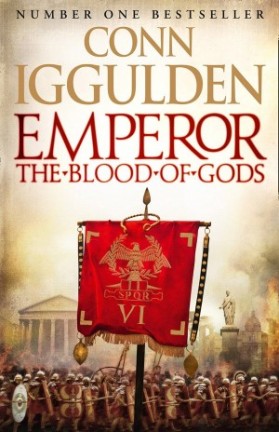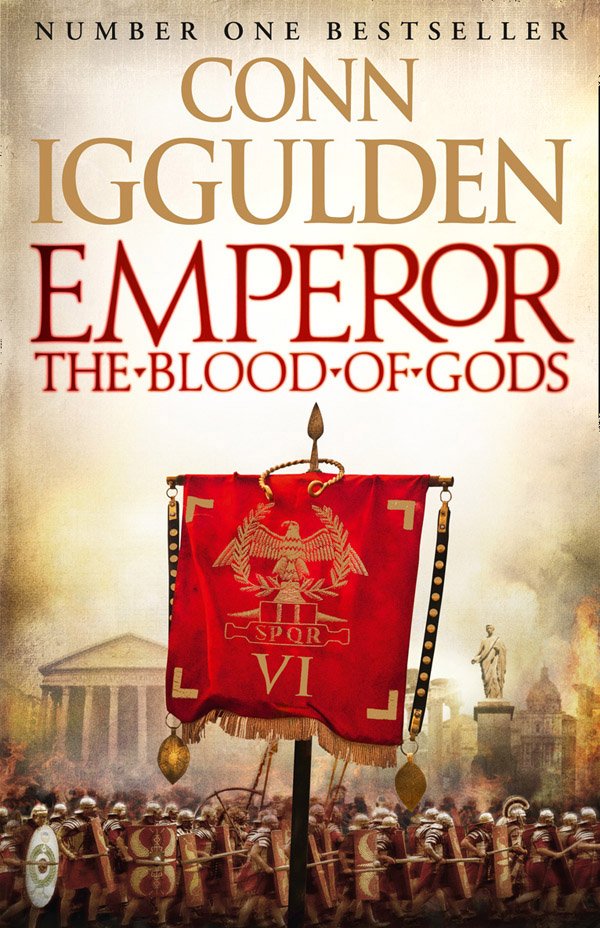By Jeremy Hannaford (Contributor) – Email
Print Edition: April 9, 2014
Gaius “Augustus” Octavian is one of my favourite historical figures, especially in the Roman Age. A cunning man who was wise in politics and battle strategy even from a young age, Octavian built on the foundation Julius Caesar had created and expanded the empire farther than Caesar could have ever imagined.
But before his great expansions took place, he was a man bent on vengeance for the murder of his tutor and adopted father.
The Blood of Gods is a tale of two narratives, one from the side of the Liberatores and the other of Octavian. Between the two different paths for Rome’s future, I was unable to favour one side over the other due to the book’s emotional portrayal of Brutus.
One of the most iconic legends in terms of betrayal, The Blood of Gods portrays a truly conflicted character who believes what he does is right, yet still regrets his choices. Conn Iggulden gives the reader a great inside look at the man who betrayed the ruler who forgave him twice. I was just as easily drawn into Brutus’ story as I was to Octavian’s.
The novel begins on the Ides of March with Brutus and his fellow senators drenched in Caesar’s blood. Brutus tells the men to bear their stained togas as a flag to their cause — that they have made a great sacrifice for the sanctity of Rome. They then march straight out of the Theatre of Pompey and into the senate halls to pronounce themselves the Liberatores of Rome.
The Blood of Gods is Iggulden’s fifth novel related to the rise of the Roman Empire. By weaving dips of extra drama into historical events, he makes his books a great read from both an entertainment standpoint and one of historical accuracy. He adds notes to his novels to point out what he changed, and when they are extreme or contradict the actual events. Much like how Michael Crichton would weave in a great science lesson into his novels, Iggulden does the same with history.
Despite my having knowledge of the events that unfolded during Octavian’s rise to power, this novel is able to add a sense of renewed life to events that happened over two millennia ago. This was the main draw to this novel for me.
Also being a fan of HBO’s Rome, I imagined how the show‘s carrying out their character’s once again. This book mirrors the first half of the second season without Atia of the Julia, Octavian’s annoying mother.
Octavian’s story is one of vengeance and political justice. His hunt for the Liberatores leads to sea battles against Quintus Pompey, and eventually a final confrontation against Brutus’s massive army at Philippi. His comrades Maecenas and Agrippa, figures often forgotten when dealing with the history of Augustus, have their moments in this novel. Maecenas is Octavian’s political advisor and Agrippa builds him a secret fleet of ships that change the face of naval warfare.
While the battle scenes are intense and covered in depth like those of British writer Bernard Cornwell, Iggulden also depicts great scenes of political debate. The scenes with the Senate are always intense, with men spouting out political ideals, military strategies, and revealing their inner temptations for power. Those fascinated with ancient politics will enjoy these moments as they show the swift-handed brutality and cunning of the Senate Order. The Blood of Gods also appeals to enthusiasts of ancient warfare both on land and sea. But in the end, it is a great portrayal of an amazing person in history — a great page-turner through and through.



